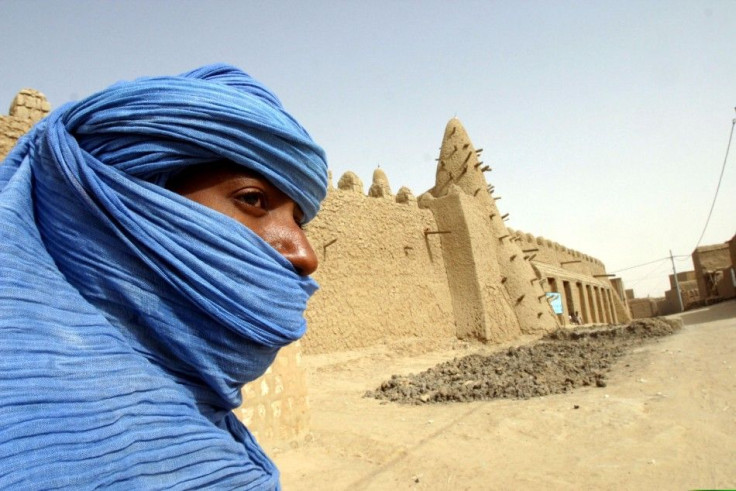Mali Unrest: Unesco Fears For Safety Of Timbuktu World Heritage Site

The United Nations Educational, Scientific and Cultural Organization warned Tuesday that the world-heritage site of Timbuktu in Mali is at risk from the fighting in the city between the Tuareg rebels and Mali coup leaders.
The ancient Islamic city of Timbuktu was designated a Unesco world-heritage site in 1988 as a testament to the golden age of Timbuktu in the 16th century and to a history that stretches even further back to the 5th century A.D., said Irina Bokova, Unesco's director general.
Timbuktu is known for its distinctive architecture that combines mud and wood. The most famous examples are the great mosques of Djingareyber, Sankore, and Sidi Yahia.
The town is also host to 700,000 ancient manuscripts, dispersed throughout approximately 60 private libraries, reported the BBC.
In addition to being home to so many treasured relics, Timbuktu is remembered as a major trading center between black Africa and the Middle East. Timbuktu brought together black Africans, Berbers, Arabs and Tuaregs.
Indeed, the city was designated as a Unesco world-heritage site for being an intellectual and spiritual capital and a center for the propagation of Islam, according to the agency.
Bokova has urged Malian authorities to take into account the obligation of countries to safeguard their heritage in times of war.
Since the military coup overthrew democratically elected President Amadou Toumani Toure, Tuareg rebels have taken advantage of instability to attack the new junta government of junior military officers.
The country's neighbors have already imposed sanctions following an emergency meeting of the Economic Community of West African States (Ecowas).
On Sunday, the Tuaregs seized the northern town, demoralizing Mali government troops who lost control over the entire northern part of the country.
It was the Tuaregs' biggest victory yet in decades of insurgency. They were also able to capture the northern centers of Kidal and Gao, according to the New York Times.
The Tuareg rebels are dominated by two groups: the larger and more popular National Movement for the Liberation of Azawad (MNLA) and the Ansar ud-Din group.
The groups have cooperated in fighting against the Malian coup leaders, but whether their collaboration will continue beyond their united effort remains doubtful.
The MNLA is a secular group while Ansar ud-Din would likely impose a version of Muslim sharia law if they won political control.
It is very unclear which movement has control where, said Baz Lecocq, professor of African history at Ghent University in Belgium, according to the New York Times.
The fighting could potentially lead to famine as residents see the price of food rising and the deadly drought season coming.
Indeed, the country is already experiencing shortages of fuel.
It is this unpredictable nature of the situation in Mali that most worries Unesco officials regarding the safety of Timbuktu.
If Mali descends into chaos, the world-heritage site risks looting and destruction.
© Copyright IBTimes 2024. All rights reserved.





















